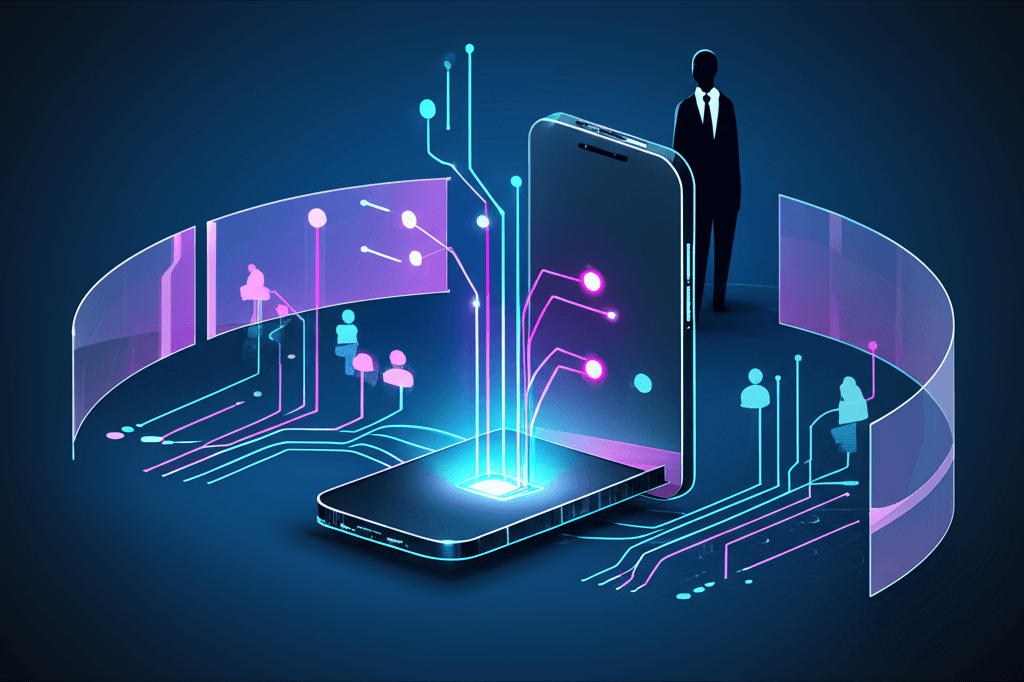Apple-OpenAI Partnership Fuels Fierce AI Monopoly and Privacy Debate
Apple's OpenAI deal sparks fierce debate over market control, privacy, and AI's competitive future, with Elon Musk leading the charge.
August 26, 2025

A major new partnership between Apple and OpenAI is sparking a fierce debate over the future of artificial intelligence, with critics, led by tech mogul Elon Musk, alleging the deal could stifle competition and create an insurmountable barrier for emerging AI companies. While no formal antitrust lawsuit has been filed by Musk's AI startup, xAI, regarding this specific partnership, the vocal opposition has cast a spotlight on the strategic alliances being formed between major technology platform owners and leading AI developers. At the heart of the controversy is the integration of OpenAI's ChatGPT into Apple's new "Apple Intelligence" system, a move that provides OpenAI with unparalleled access to hundreds of millions of users, potentially at the expense of other AI model developers seeking to compete.
The partnership, announced at Apple's Worldwide Developers Conference, will see ChatGPT integrated into Apple's operating systems, including iOS 18, iPadOS 18, and macOS Sequoia. This integration allows the virtual assistant Siri to tap into ChatGPT for more complex queries that go beyond its native capabilities. Apple has emphasized that user consent will be sought before any query is sent to OpenAI's servers and that user data will not be logged. For Apple, the deal provides a fast track to advanced generative AI features, closing a perceived gap with competitors like Google and Microsoft, the latter of which is a major investor in OpenAI. For OpenAI, the benefits are monumental, embedding its technology into one of the world's most valuable and widely used consumer electronics ecosystems, creating a massive pipeline of users and further solidifying its market-leading position.
This arrangement has drawn sharp condemnation from Elon Musk, who has a complex and contentious history with OpenAI, which he co-founded and later left. Musk has publicly decried the partnership as an "unacceptable security violation," threatening to ban Apple devices from his companies, including Tesla and SpaceX, if the integration is embedded at the operating system level. He argues that Apple, despite its strong reputation for user privacy, cannot truly know or control what OpenAI does with the vast amounts of data it will receive from Apple users. These criticisms are amplified by the fact that Musk is running a direct competitor, xAI, which develops the AI model Grok. His objections are therefore viewed through both a security and a competitive lens, suggesting that this exclusive arrangement could lock out other innovative AI systems from a critical distribution channel.
Beyond Musk's direct financial and competitive interests, the Apple-OpenAI alliance raises significant questions about the broader competitive landscape of the AI industry. Antitrust experts and industry observers are watching closely to see if such deals lead to a concentration of power that could harm innovation and consumer choice in the long run. The concern is that the AI market could become dominated by a few powerful pairings of large language model developers and the tech giants that control the primary access points to consumers, such as smartphone operating systems, search engines, and cloud computing platforms. This could create a "walled garden" effect, where smaller AI startups and open-source models struggle to gain traction and access the data and user interaction necessary to improve their systems. The partnership effectively anoints OpenAI as the preferred third-party AI for the vast and lucrative Apple ecosystem, creating a significant hurdle for any other AI company, including xAI and Google, hoping to offer its services to iPhone users.
In conclusion, the collaboration between Apple and OpenAI represents a pivotal moment in the deployment of artificial intelligence, blending cutting-edge AI with a massive consumer base. However, the strong backlash, particularly from a significant competitor like Elon Musk, has ignited a crucial debate about market fairness, data privacy, and the potential for anticompetitive behavior in the burgeoning AI sector. While Apple and OpenAI maintain that their partnership is designed with user privacy and choice in mind, the deal's structure has undeniably sent ripples through the industry, raising fears that the future of AI could be shaped not by open competition, but by exclusive deals between the most powerful players in technology. The long-term implications for innovation and the ability of new AI ventures to challenge the incumbents will depend on how regulators and the market respond to this new paradigm of integration.